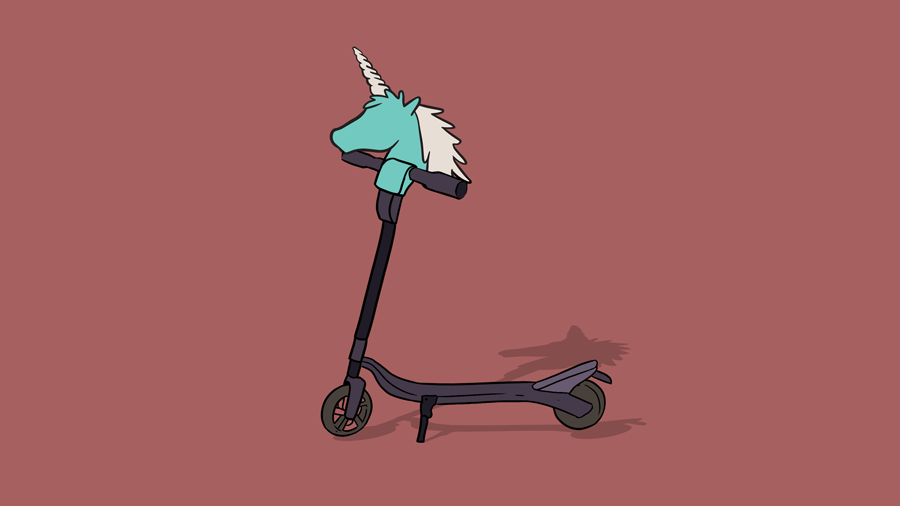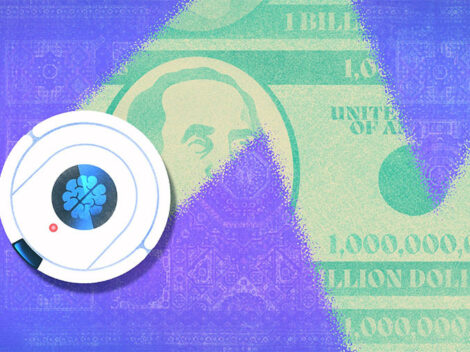Sick of scooters yet? Well, you’d better not be as there is little sign that the two-wheeled phenomenon is slowing down. Hell, you can even find off-the-shelf tools to build the software and hardware side of your own fleet, and one of the major players has launched its own platform that you can use to rent out the things.
It’s madness, but a very tech-ish form of madness that is infused with greed. We digress.
Given the chronic fracas of the scooter market, we set out to understand which of its constituent players is taking the most global market share, as measured by markets shared, and markets owned. We decided to tally where Bird and Lime, two scooter-ni-corns1 currently operate to get a feel for an answer.
Also, we’ll take a look at a few of the plethora of other scooter companies that have cropped up like so many spring weeds, as investors have seen fit to fund all sorts of players.
Bird
Bird, a scooter-only company, is easy to understand. The company’s app-connected scooters first hit its hometown streets of Santa Monica in 2017. Bird has since quickly expanded to other local and global markets.
Crunchbase News went through its website, digging into where the company currently operates. It shook out to eight cities in seven countries including Tel Aviv and London. You can also find Bird’s two-wheeled vehicles in 73 cities in the U.S., including Charlotte, Dallas, and San Diego, as well as on 17 college campuses, including one internationally.
So that’s 98 or so markets.
Lime
Lime is a harder nut to crack, as the company started life as a bike-sharing shop. It later added scooters and battery-assisted bikes. More recently, the fruit and juice-themed company announced that it will mix in cars to its mobility matrix.2
That said, we have a tally of its markets per its website, which works out to 22 cities in 15 countries outside of the United States including Paris and Lyon in France, and Mexico City, Mexico. Back at home, Lime vehicles can be found in 99 cities including Seattle, Tulsa, and Raleigh, and on 28 college campuses.
So that’s 149 markets, give or take. That’s more than Bird’s 98. We have a note into the company asking how many markets that they currently operate in contain scooters so that we can do a fairer, more direct comparison to Bird. We’ll update this post when we hear back. Update: Lime got back to us, reporting that the company has scooters in 72 cities globally.
Bird Versus Lime
Before we turn to non-domestic and smaller providers, keep in mind the stakes at play between Lime and Bird. The two companies have raised a total of $882 million in known capital. That figure could be short if they have stacked new dollars that they have yet to disclose.
But that capital figure and their billions in shared valuation mean that they have become material companies in their own right. Uber and Lyft have shown that with many more billions in raised capital, you can wind up with something of a mobility-genre duopoly (in the case of ridesharing), although both firms remain steeply unprofitable.
There’s classically tension between growth (revenue, normally, but market expansion for Bird and Lime is a working proxy for our uses), and profitability. I doubt they are focused as much on the latter as the former.
Now, who else is out there? Let’s take a look.
Other Notable Players
Skip, which has raised $31 million, operates in Washington DC, and, critically, in San Francisco. Bird and Lime managed to not get approved to operate in the tech hub after both were running in the city without permits.
Staying inside the United States, Spin is in nine United States cities (Charlotte, Coral Gables, Denver, Detroit, Durham, Jefferson City, Lexington, Long Beach, and DC) and five college campuses. This is a notable grip of markets given that Ford bought the company earlier this quarter. Spin had raised just $8 million during its life as a private, independent company.
Scoot is perhaps most famous for its electric vespa-ish scooters that cropped up in San Francisco in recent years. However, the firm managed to be the other scooter company approved to work in San Francisco. Scoot is also an international player, with its upright scooters also touching down in Santiago, Chile.
Interestingly, Bird has not entered any East Asian markets, where smaller companies like Singapore-based startups PopScoot and Beam have launched their own scooter sharing platforms. Elsewhere globally, the companies face competition including in Germany with Tier Mobility and Wind Mobility, which both recently picked up capital and are looking to expand elsewhere in Europe. Other global competitors include Stockholm-based Voi Technology, São Paulo-based Yellow and SCOO, and Mexico City-based Grin.
In the race to dominate the last-mile industry, Lime and Bird have the upper hand, capital-wise at least, for rapid expansion. It shows in the number of markets in which they are currently operating. Still, the companies will also have to perform a balancing act between geographical growth and regulatory approval. And the winner, or winners, are hardly decided yet in a market as young as this one.
Editorial Update: A previous version of this article erroneously stated that Lime operates in 12 cities in eight countries outside of the U.S. and that it does not operate in Asia. It has since been updated.

Stay up to date with recent funding rounds, acquisitions, and more with the Crunchbase Daily.






![Illustration of a guy watering plants with a blocked hose - Global [Dom Guzman]](https://news.crunchbase.com/wp-content/uploads/quarterly-global-3-300x168.jpg)
67.1K Followers